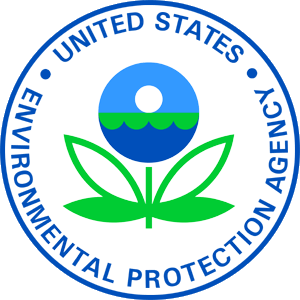EPA Administrator Wheeler awards first-ever Trash Free Waters grant for the Great Lakes in Milwaukee
Agency selects Harbor District, Inc. to receive grant to keep trash out of Lake Michigan
“I’m incredibly honored and excited to announce the first-ever Trash-Free Great Lakes grant on the shores of Lake Michigan. The Great Lakes is home to one of the largest sources of fresh water in the world and the Trump Administration is committed to protecting and restoring this cherished resource,” said EPA Administrator Andrew Wheeler. “Today’s announcement will make a visible difference to an Area of Concern in Milwaukee.”
“The Great Lakes are vital to Southeast Wisconsin and the cities of Racine and Kenosha. Lake Michigan provides important economic, environmental, and recreational opportunities for our communities. Thank you to President Trump and Administrator Wheeler for strengthening the Great Lakes. I am proud to support federal programs, like the GLRI, in Congress and will continue working to protect the Great Lakes,” said Rep. Bryan Steil (WI-01).
Removing trash, litter and garbage – including plastics – from marine and freshwater environments is one of EPA’s highest priorities. Administrator Wheeler created the Trash-Free Great Lakes grant program in July 2019 requesting competitive applications for $2 million in GLRI funding for community-based projects to clean up beaches and waterways to ensure the Great Lakes watershed continues to provide habitat for wildlife and drinking water and recreation all Americans.
This project, which addresses riverborne trash, is the first to be selected under the recently developed GLRI grant program specifically focused on funding trash-free water projects in the Great Lakes. Harbor District, Inc. and local partners will install a trash collection device-in the Kinnickinnic River close to the west bank, almost two miles upstream of Lake Michigan. Floating booms will capture trash and other floating debris and direct it to the collection device. Conveyor belts will then transfer the collected trash and debris to a dumpster located on the riverbank for proper disposal. The project will capture trash from a 16,000-acre watershed and is estimated to collect an estimated 75 tons of trash annually.
This project is part of the larger effort to restore and protect the Great Lakes, a priority of the Trump Administration. In October 2019, EPA Administrator Andrew Wheeler announced the GLRI Action Plan III, an aggressive plan that will guide Great Lakes restoration and protection activities by EPA and its many partners over the next 5 years.
“After years of neglect and decline, the Kinnickinnic River is experiencing a rebirth as local and federal partners remove concrete channel, restore its banks and clean its waters. Our community is anxious to get to work on one of its most visible problems – trash,” said Harbor District Executive Director Lilith Fowler.
The Kinnickinnic River is located within the Milwaukee Estuary Area of Concern (AOC), one of 43 AOCs in the Great Lakes basin identified by the United States and Canada. AOCs were identified by the two countries as exceptionally environmentally impacted areas primarily due to “legacy contamination”, i.e., contamination caused by waste disposal practices dating as far back as the late 19th century and habitat degradation.
The Kinnickinnic is the most challenged watershed in Milwaukee due to its turbidity and high concentrations of phosphorus, chloride and bacteria. During wet weather events, garbage washes into the river and flows downstream into Lake Michigan, collecting on vegetation and dock structures along the way. Trash impacts water quality as well as aquatic life, degrading habitat and contributing to the bioaccumulation of toxins found in plastic.
EPA has made significant progress in the Milwaukee Estuary AOC thanks to successful partnerships with its State and local partners, including an active local stakeholder group. Since 2009, over $120 million has been invested in the AOC from both federal and non-federal sources. Of that, EPA has provided over $87 million of federal funding to support remediation and restoration efforts through the GLRI and Great Lakes Legacy Act. The Trump EPA recently awarded an additional $644,000 to the Wisconsin Department of Natural Resources for project management support and water quality evaluation at beaches within the AOC.
For more information on Trash-Free Waters: https://www.epa.gov/trash-free-waters
For more information on GLRI: https://glri.us/
For more information on the Milwaukee Estuary AOC: https://www.epa.gov/great-lakes-aocs/milwaukee-estuary-aoc
NOTE: This press release was submitted to Urban Milwaukee and was not written by an Urban Milwaukee writer. While it is believed to be reliable, Urban Milwaukee does not guarantee its accuracy or completeness.
Mentioned in This Press Release
Recent Press Releases by U.S. Environmental Protection Agency
EPA Releases Draft Health-Based Recommendations for PFAS Levels in Bodies of Water
Dec 19th, 2024 by U.S. Environmental Protection AgencyCriteria can be used to inform water quality standards to protect people from exposure to PFAS
Crane Company Manitowoc to Pay $42.6M for Clean Air Act Violations for Sale of Noncompliant Diesel Engines in Heavy Duty Cranes
Dec 19th, 2024 by U.S. Environmental Protection AgencySettlement requires company to retrofit a short-line locomotive engine to improve air quality along 70-mile-long pathway in the Sparrows Point area of Maryland





















